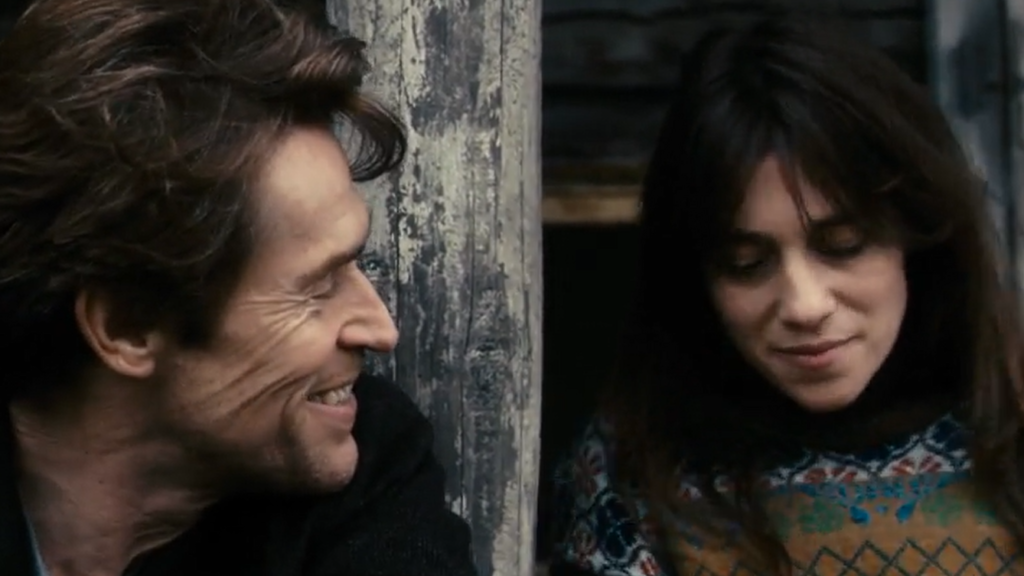Antichrist
2009

Rated: NC-17
Genre: Drama, Thriller. Horror (Extreme Content)
Country: Denmark
Run-Time: 1h 48min
Director: Lars von Trier
Cast
Willem Defoe…………………..he
Charlotte Gainsbourg…..she
When Lars von Trier releases a film, it is becoming more and more of a niche event. Though he is often considered one of the most impactful directors working today, von Trier’s later foray into dreary, controversial content has limited his viewership mostly to cinephiles and in-the-know festival goers that wish to see movies that are willing to push the medium’s boundaries. Fortunately, this has also benefited horror fans. (I urge all fans of the genre to check out von Trier’s The House that Jack Built.)
I admit, Antichrist is not going to be a film for everyone. It, like Gasper Noe’s Irreversible, is the epitome of adult horror. (I shudder at the thought that for seven years, it was legal for teenagers as young as 16 to watch Antichrist in France.) The film contains scenes with graphic sex and excessive mutilation and its observations on the power dynamics in relationships is not material inexperienced minds would understand or appreciate. But for those of us who are more mature, yet still willing to view extreme content, Antichrist is a beautiful film that can boast of award-winning cinematography and acting. (Charlotte Gainsbourg won Best Actress at Cannes for this role.) The film, being part of von Triers Depression trilogy (which includes Melancholia and Nymphomaniac) also makes meaningful statements about mental illness, though many of its revelations are extraordinarily unnerving.
Antichrist is about a husband and psychiatrist (Willem Defoe) and his wife (Charlotte Gainsbourg) who retreat to a cabin in the woods after the tragic death of their son. Of course, for reasons I will not go into, this turns out to be a really bad idea. Often, a situation like this would be a great set-up for the home invasion genre, but Antichrist does not require the addition of any characters outside of Defoe and Gainsbourg to create tension and horror. The film often intentionally alludes to the story of Genesis, acting as a perversion to the biblical tale of Original Sin without a serpent or an apple. Instead, von Trier uses the struggles between Defoe and Gainsbourg as a catalyst for larger allegorical statements about human nature, authority, and power structures.
In many ways, watching Antichrist reminded me of Pascal Laugier’s Martyrs, and not just because both contain extremely graphic content. Like Martyrs, Antichrist is a film that continuously challenges our expectations. The film we think we are watching is constantly transforming into something else, forcing us to re-assess the material and view it in a new light. The film starts off as a layered psychological exposition on the stages of grief but quietly morphs into something more primal. In a lesser film, this type of tonal hijacking would be evidence of a director who is unsure of what to do with the material, but here von Trier proves to be in total control of his meticulously crafted six-chapter (I included the prologue and epilogue) narrative, and his message is one that is uncompromisingly nihilistic and devastating. If you enjoy Antichrist and are alright with its excessive material, then Martyrs is a must-see. Traditional horror fans are likely to be disappointed that Antichrist lacks overt scares, but modern horror fans will appreciate how the film’s constant sense of impending menace skillfully undercuts Defoe’s frequent discords on rationality.
Although I agree that Antichrist deserves (at least) a NC-17 rating, having seen the film, I do not think it is a film deserving of headlines like “Antichrist: a work of genius or the sickest film in the history of cinema?” Truthfully, most of the controversy has to do with one well telegraphed easy-to-look-away-from scene that I will probably never be able to not turn my head away from. (Apparently, even I have limits.) Many of the film’s defenders, like Martyrs, will tell you that there is a point to all of Antichrist’s extreme content, but I, personally, have little interest in making that case. All I will say is that each viewer must deal with this content for themselves in their own way and that this, hopefully, is not seen as a deterrent from enjoying a defiant and mature work of cinema.
A film like Antichrist is a rare specimen. It represents the best of what modern adult horror can achieve. Lars von Trier may not have a reputation in the industry for playing nice, but he does have a reputation for being prolific- and Antichrist is a significant contribution to the filmography of one of the most daring auteurs working in cinema today.
